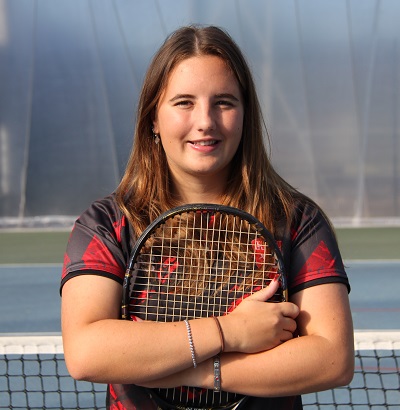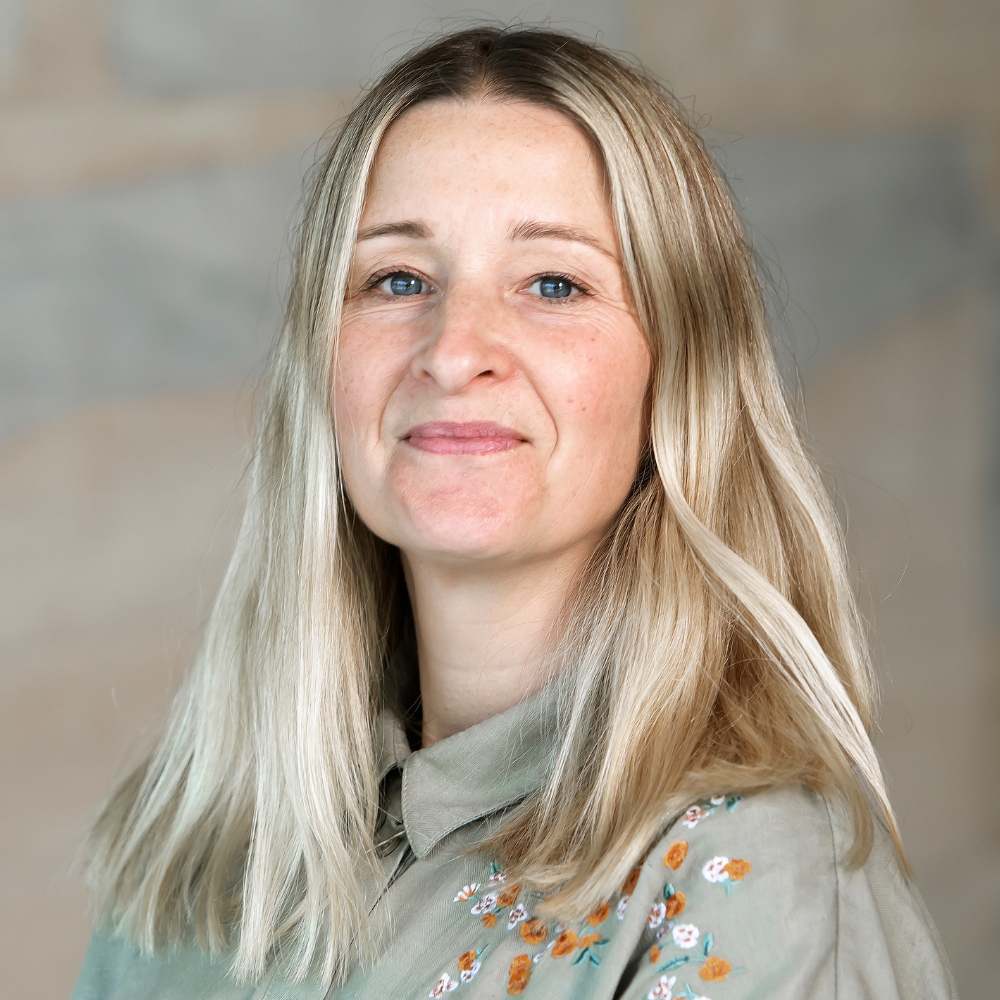Introducing...Chantal Griffiths
Navigating through clearing can be a daunting experience, but for one undergraduate tennis scholar at our university, it became an unexpected pathway to personal and academic growth. From initial disappointment to thriving as a member of the women's first team, Chantal’s story highlights the resilience, adaptability, and opportunities for self-progression that clearing can offer.

How did you feel when you found out you had to go through clearing? What were your initial thoughts?
To be completely honest, I don’t think it ever really hit me. When I first found out I was a little disappointed and surprised, but I had been toying with the idea of taking a gap year anyway. This made my clearing experience more relaxing as there was no pressure for me to secure a place. My mindset was that I would see if opportunities presented themselves and weigh up my best options.
Can you share your experience navigating the clearing process? What steps did you take to secure your place at Essex?
The clearing website has hundreds of places at different universities. With their new grade requirements listed, you can filter them similarly to when you look for courses to apply for. I would recommend checking information on the specific university's clearing website as it can differ from the UCAS one, plus it may be prone to crashing when you least want it to!
The process is a lot easier and less stressful than it is made out to be, so my main piece of advice is don’t worry about it. The most important step in securing a place is to call the universities. The phone lines are usually busy so you will most likely have to wait a while before getting to speak to anyone, but it is worth the wait. I would also recommend calling them several times if you don’t receive an offer the first time around. If you haven’t been able to get the option you wanted straight away, give them another call in a day or two in case the entry requirements change.
What factors influenced your decision to accept the cash bursary and join the women's first team at the university?
I received a couple of other offers through clearing but all the academic staff and coaches try to sell themselves so it can be difficult to know which is going to be the best fit for you. Tennis Coach Nigel Parsons invited me to train with the team as pre-season had already started. This was by far the most helpful thing allowing me to see for myself what the environment was like and meet the other players, giving real insight into life at Essex. I was able to talk directly with Nigel about what bursary opportunities were available and how I needed to go about securing them - this almost certainly played a key part in my decision.
What challenges did you face during your transition to university life and how did you overcome them?
I think I struggled mostly with feelings of uncertainty and imposter syndrome when I first arrived. I felt unprepared having made my decision so late, leaving just a few weeks to organise everything, and much less deserving of the place because I hadn’t gone through the regular admissions process.
I don’t know if you could say I actively tried to overcome this at the time but speaking to other people on my course and making friends with other first years inadvertently helped put my mind at ease, allowing the transition to university life to be a lot smoother.
How has being part of the women's first team enhanced your university experience?
It’s been a great experience, shaping both my tennis skills and my personal and academic growth in a variety of unexpected ways. One of the most significant skills I've learned through this journey (that I was most definitely lacking!) is the art of time management. Balancing the rigorous training schedule, intense matches, and academic commitments has been a challenging but vital task. It has taught me key lessons in prioritisation and organisation, which I will take forward and benefit me for the rest of my life.
Being part of the first team has given me an invaluable support network that extends far beyond the tennis court. From our coaches, who are always there to offer guidance and mentorship, to the teammates whose unwavering encouragement and support is present both on and off court. The SU staff, Strength & Conditioning coach, and other sports staff are there if you have any problems or if you want to speak to someone that you may be slightly less involved with day-to-day.
What advice would you give to other prospective students who may find themselves in a similar situation, considering applying through clearing and aiming to join a sports team?
There is honestly no better advice than to just do it! Be proactive and contact the coaches or sports staff as soon as possible, they can give you so much information and advice on what options you have regarding bursaries, accommodation, and other opportunities and the sooner you register your interest the better. Even if you aren’t sure, I would still highly recommend contacting the sports staff regarding benefits you may not have considered and it's always better to have as much insight as possible to make an informed decision.
How has receiving the cash bursary impacted your academic journey and overall experience?
Overall, being fortunate enough to receive a bursary has provided me with the financial stability to make the most of my university experience. With less worry about how to cover my accommodation and living expenses, I have been able to devote more time and energy to studying and sport as well as being able to join other societies and teams.
In what ways do you think your experience as a student-athlete differs from that of other undergraduates?
Being a student-athlete is challenging at times, but it helps you develop skills that benefit you throughout your life. It teaches you how to juggle several commitments and how to say no if you find yourself with too much on your plate. Another way it is slightly different from the regular student experience is that you need to be much more independent. For example, an undergrad would generally be told what assignments need to be done by when, what books to read, and what lectures to go to. When you’re part of a sports team, although we have set practices we have to go to, it is down to you to take responsibility for your improvement by going to the gym, or attending other practices, getting the right nutrition, and completing any injury prevention techniques. The responsibility is most likely not something that every student will have to experience but it is great for your personal development allowing you to work out what motivates you.
Looking back, what would you say to your past self who was worried about their outcome and considering applying through clearing?
Reflecting on my journey through clearing I think I would emphasise the importance of resilience and adaptability when faced with challenges. Whilst it's natural to feel apprehensive about the unknown, I would remind myself that setbacks are not indicative of failure but are opportunities to explore a different path that you might never have considered and learn from what has happened.
Discover how our Performance Sport Programme at Essex can support your overall development.
Follow our student athlete's journey on Instagram @uniessexperform
Sport scholarships and bursaries
We are committed to supporting and developing high performance athletes. Find out whether you could be eligible for a sport scholarship or bursary, plus a range of additional benefits when you join the University of Essex.





